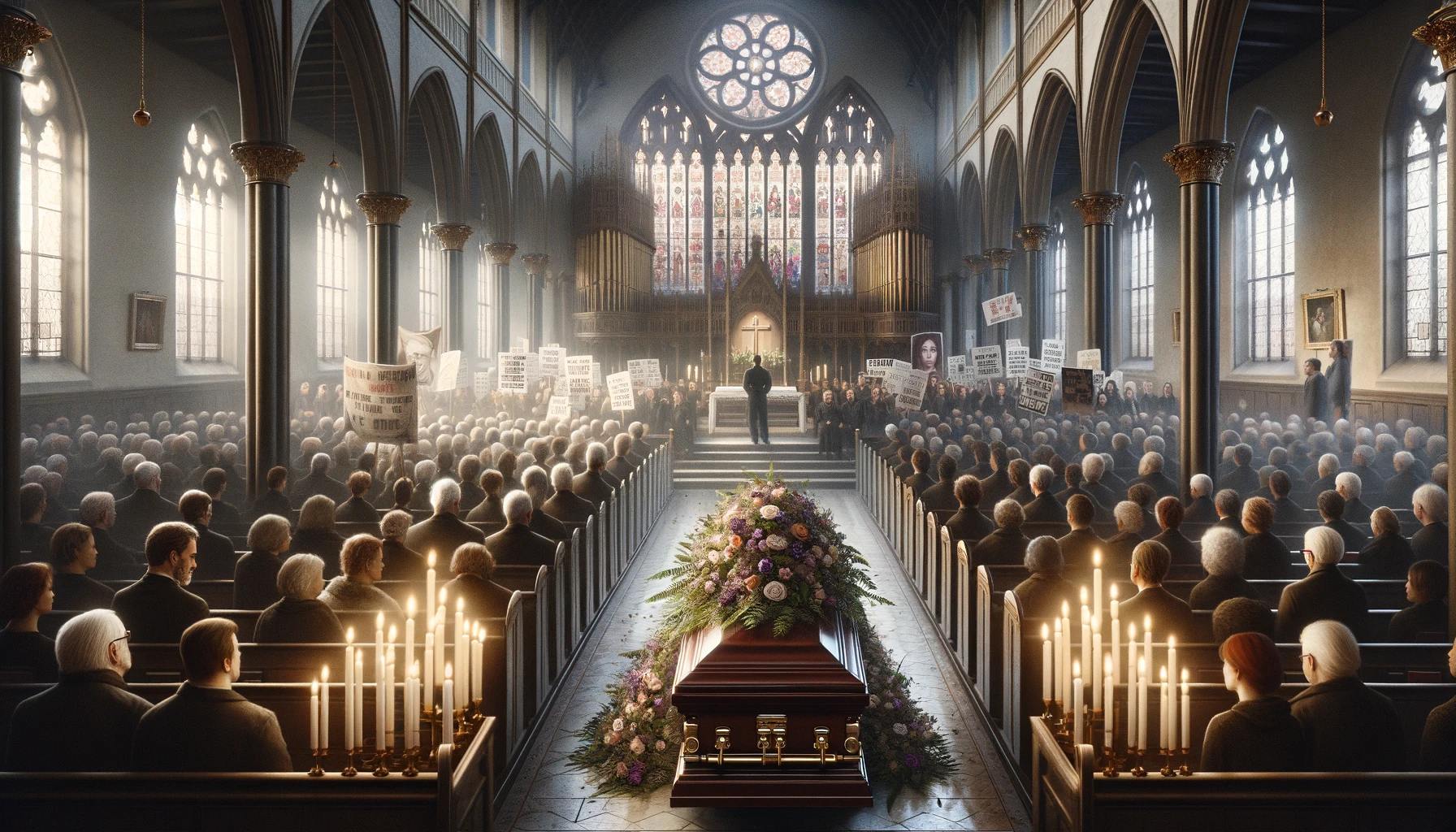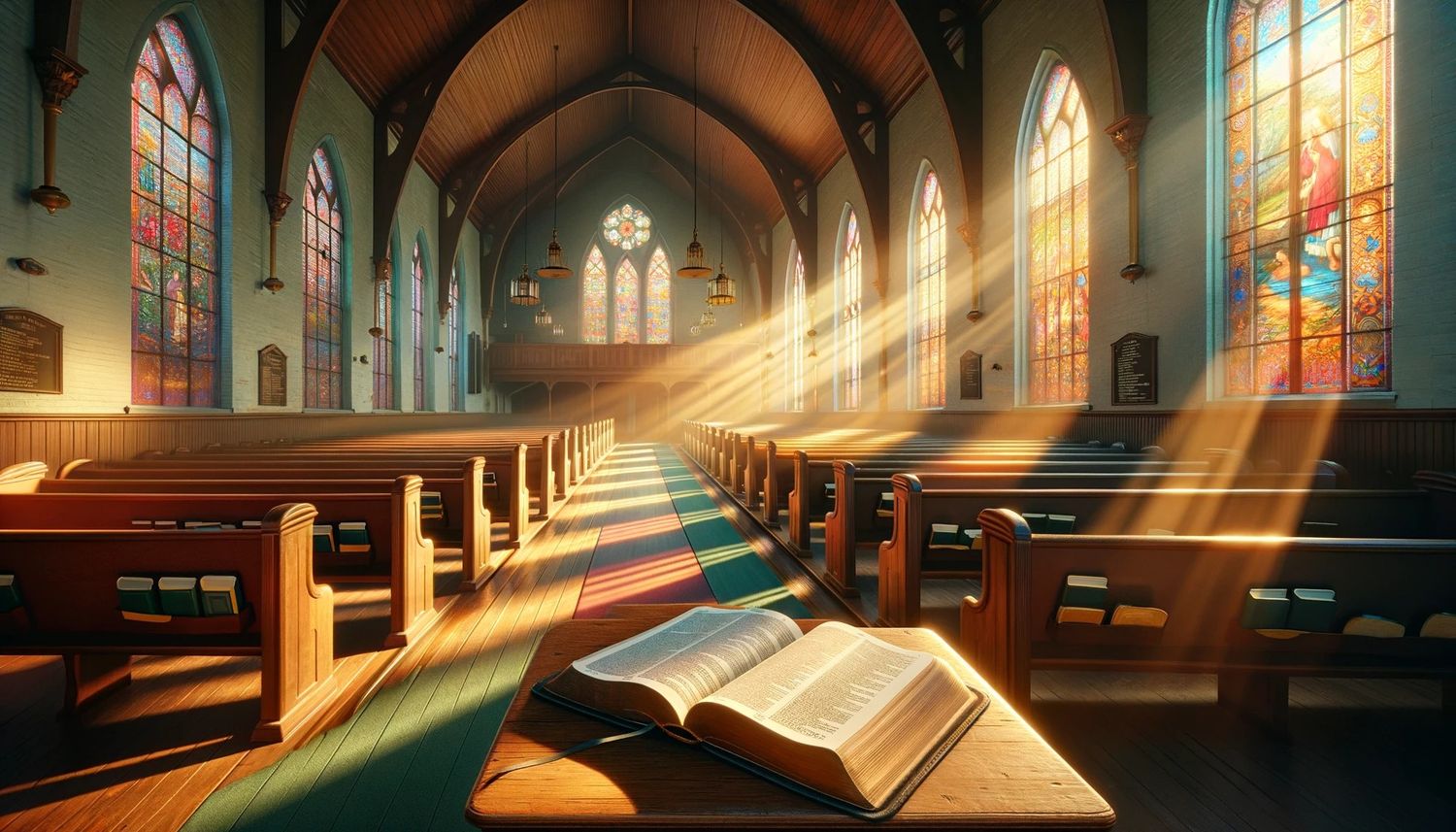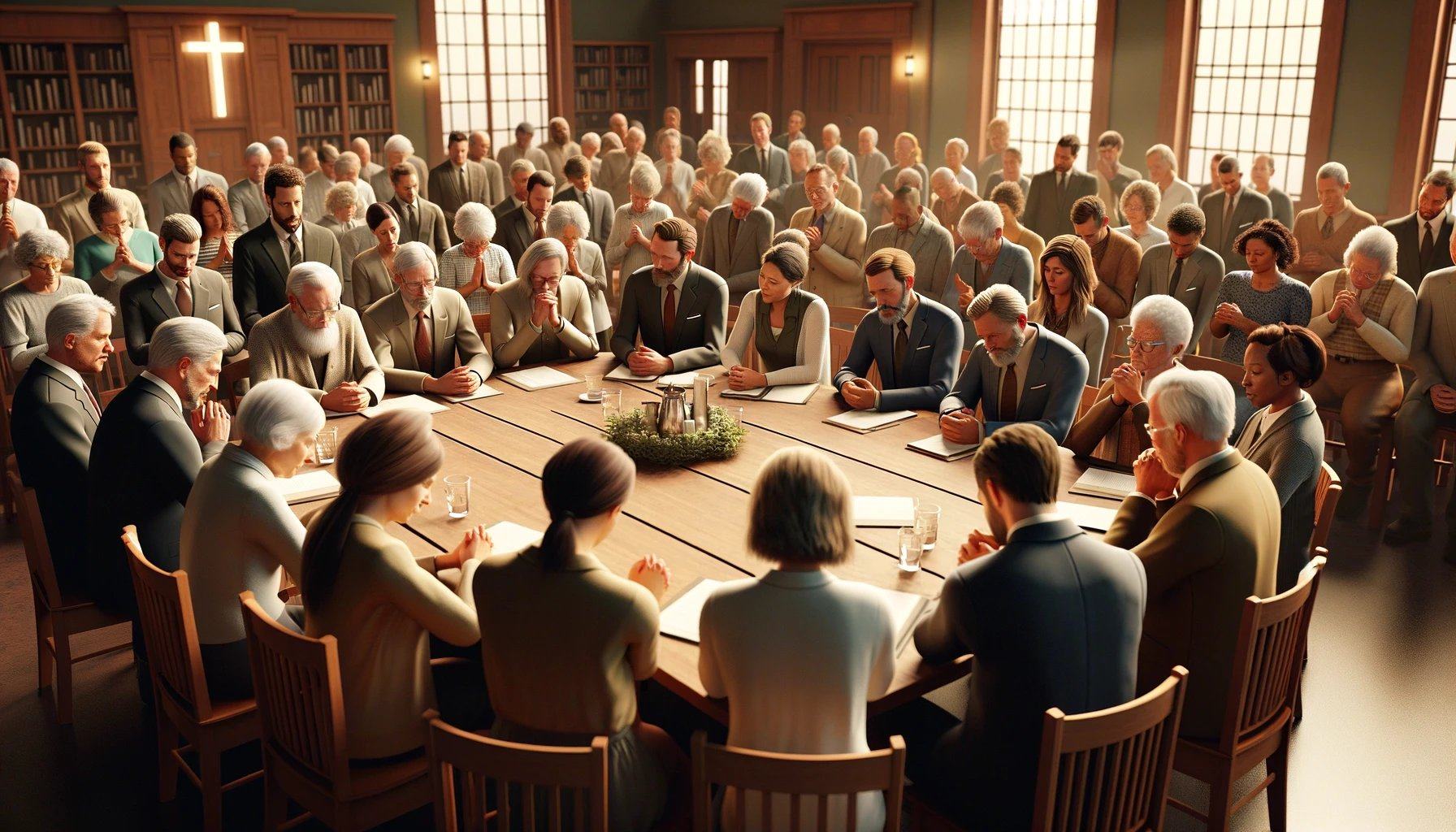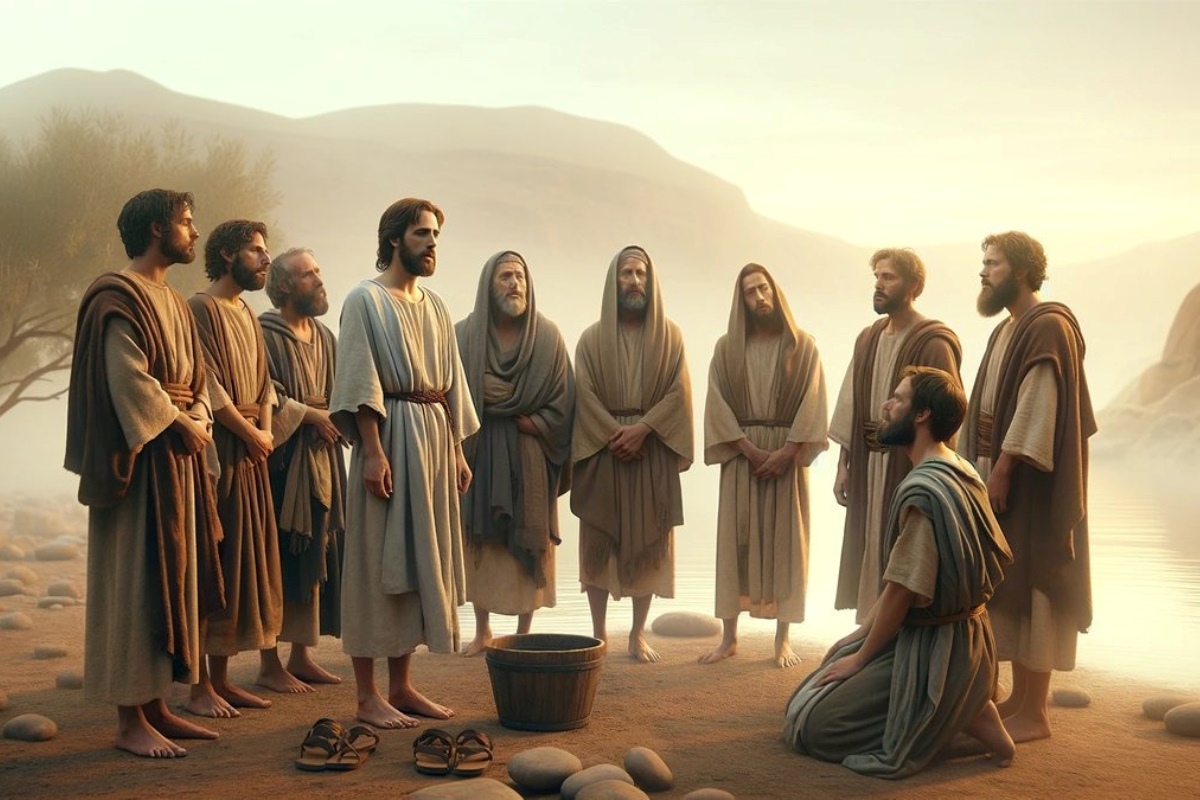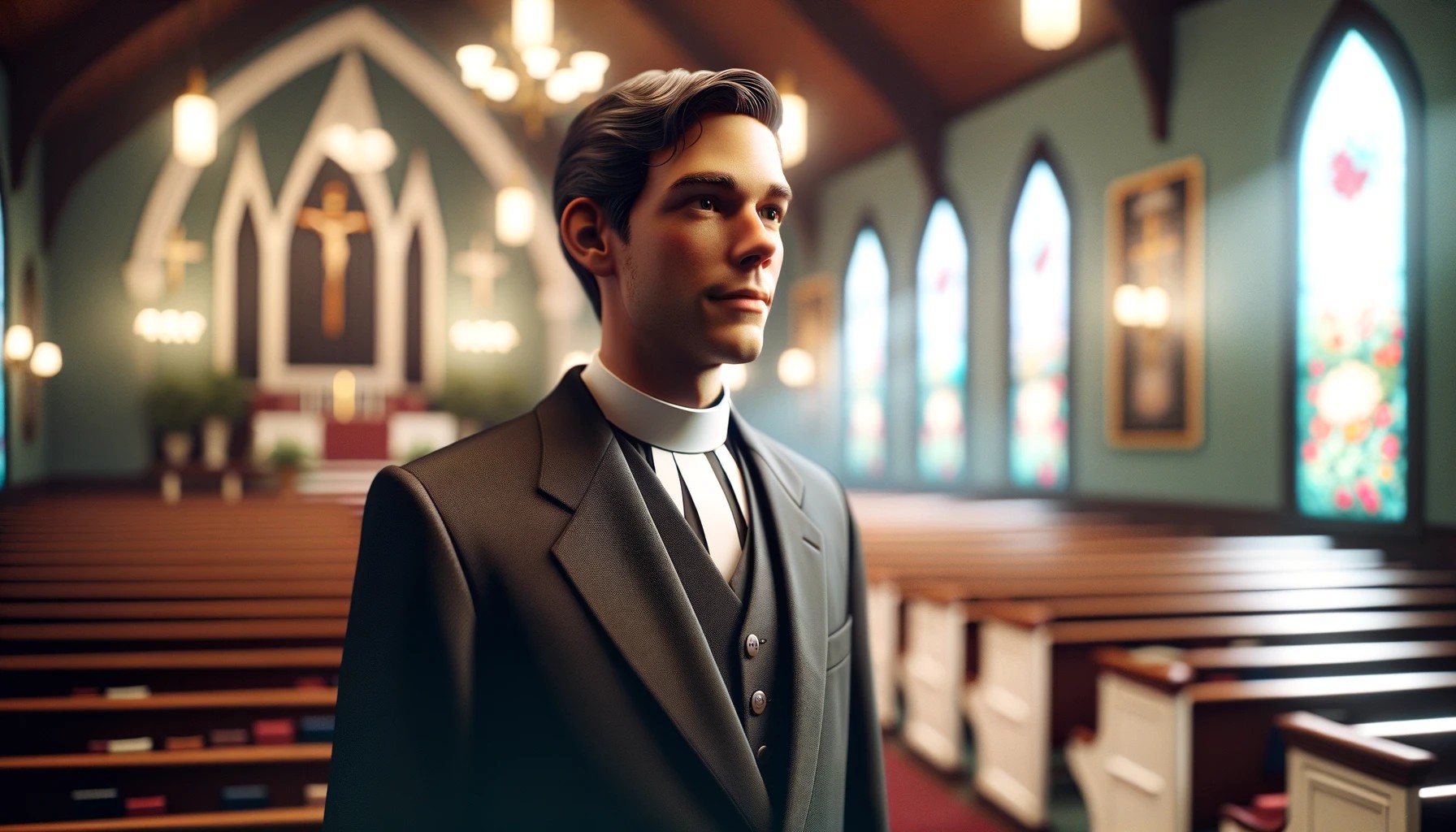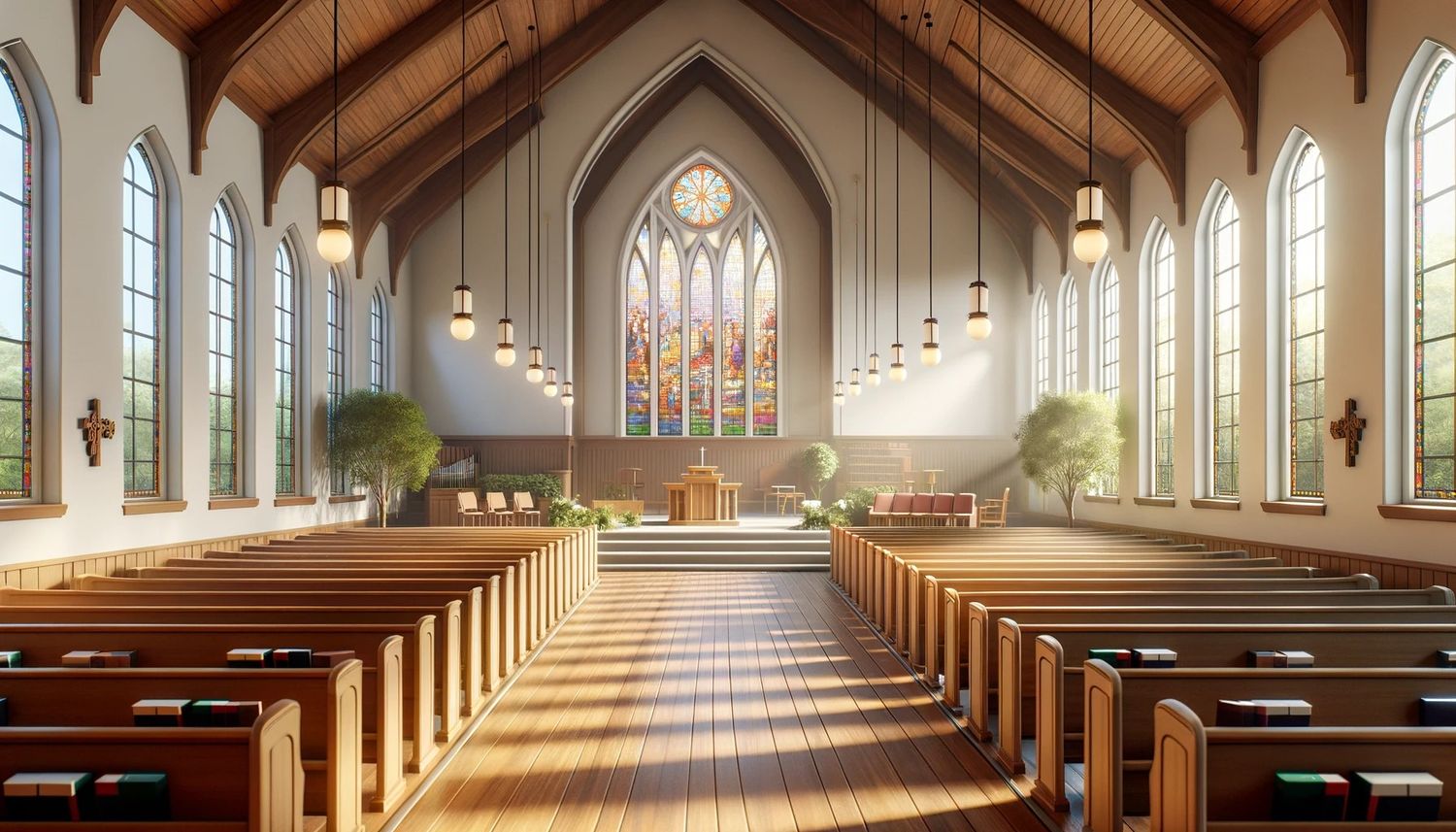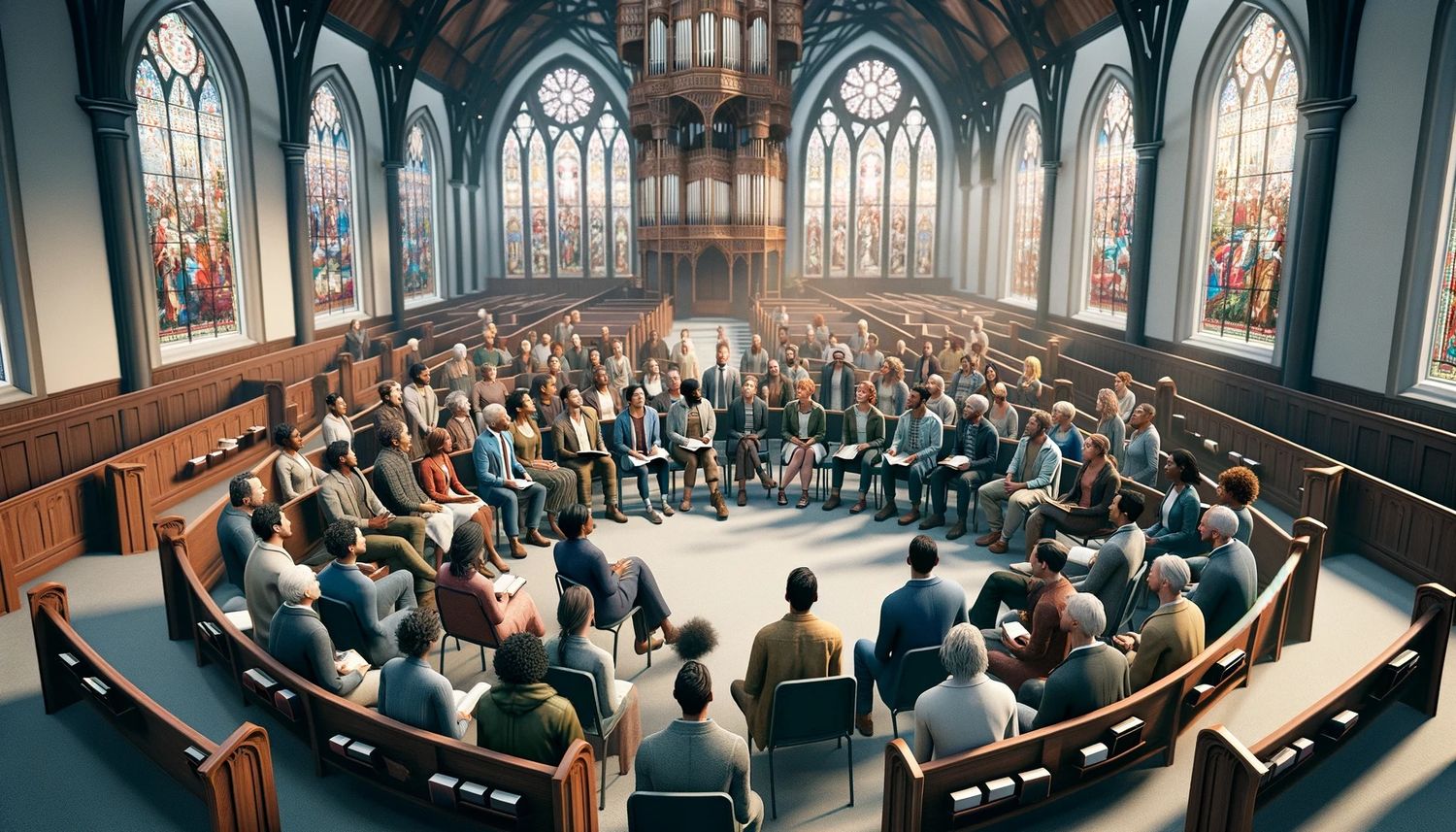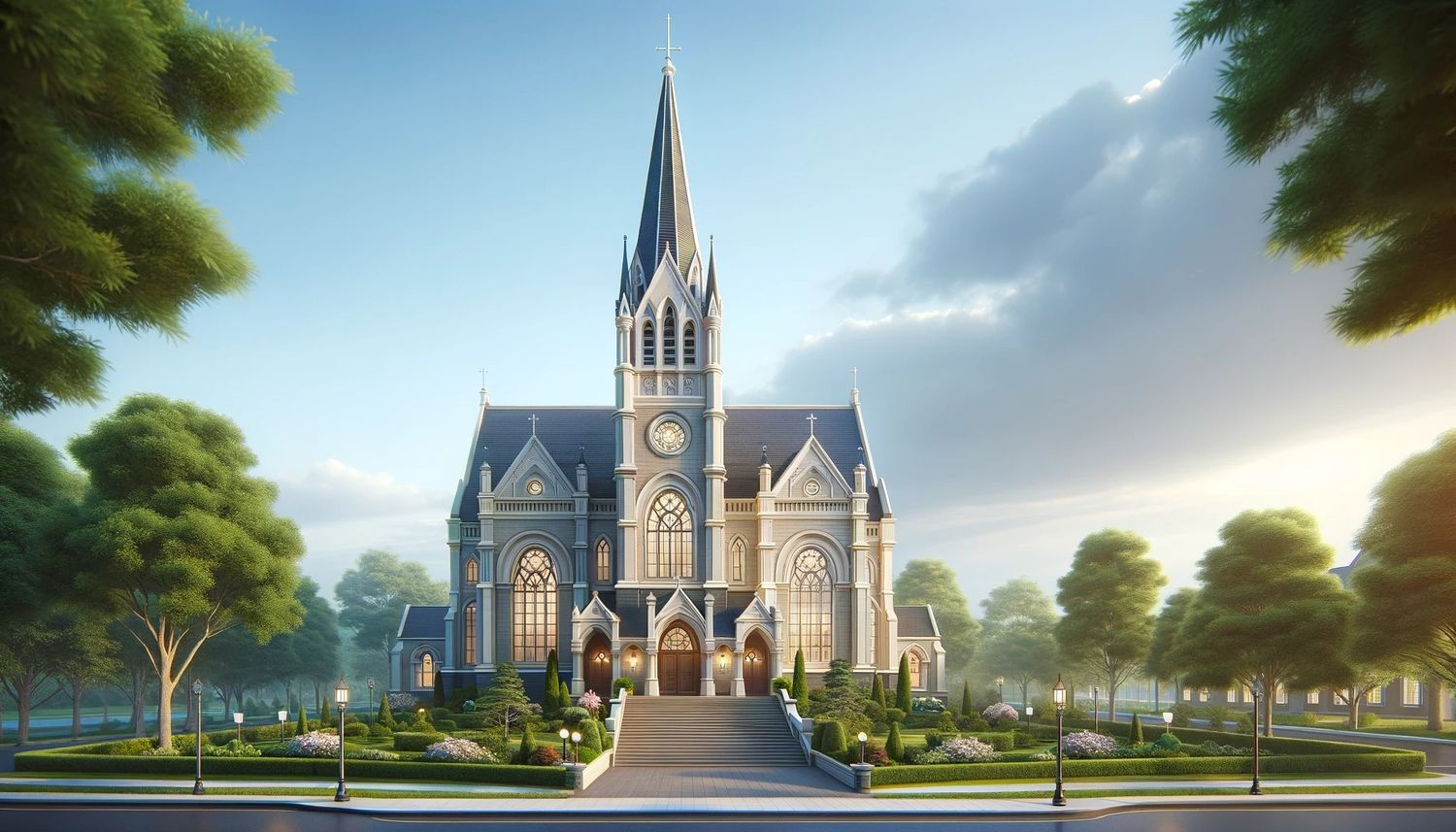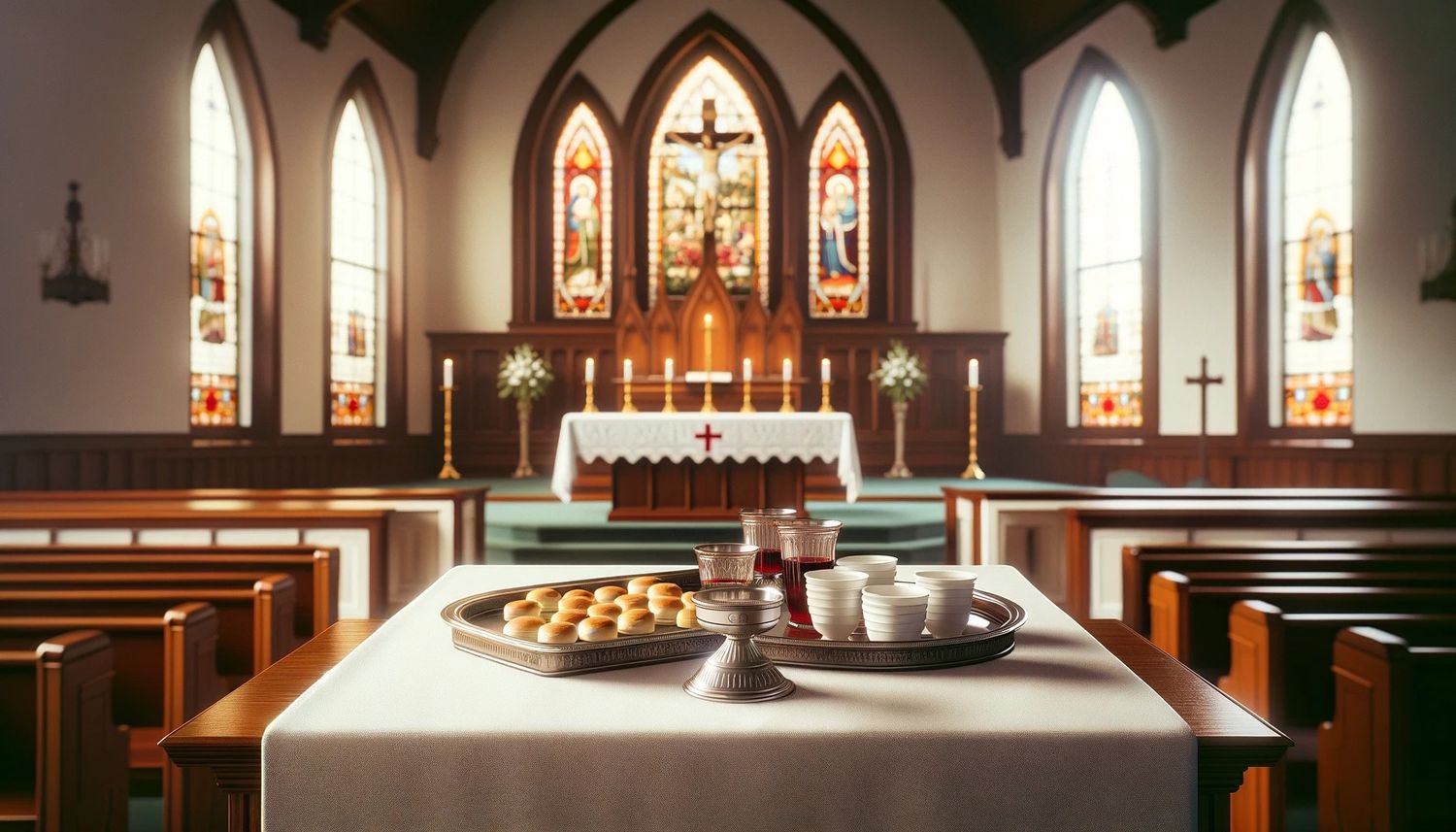Home>Theology and Spirituality>How Were The Rights Of The Westboro Baptist Church Protected
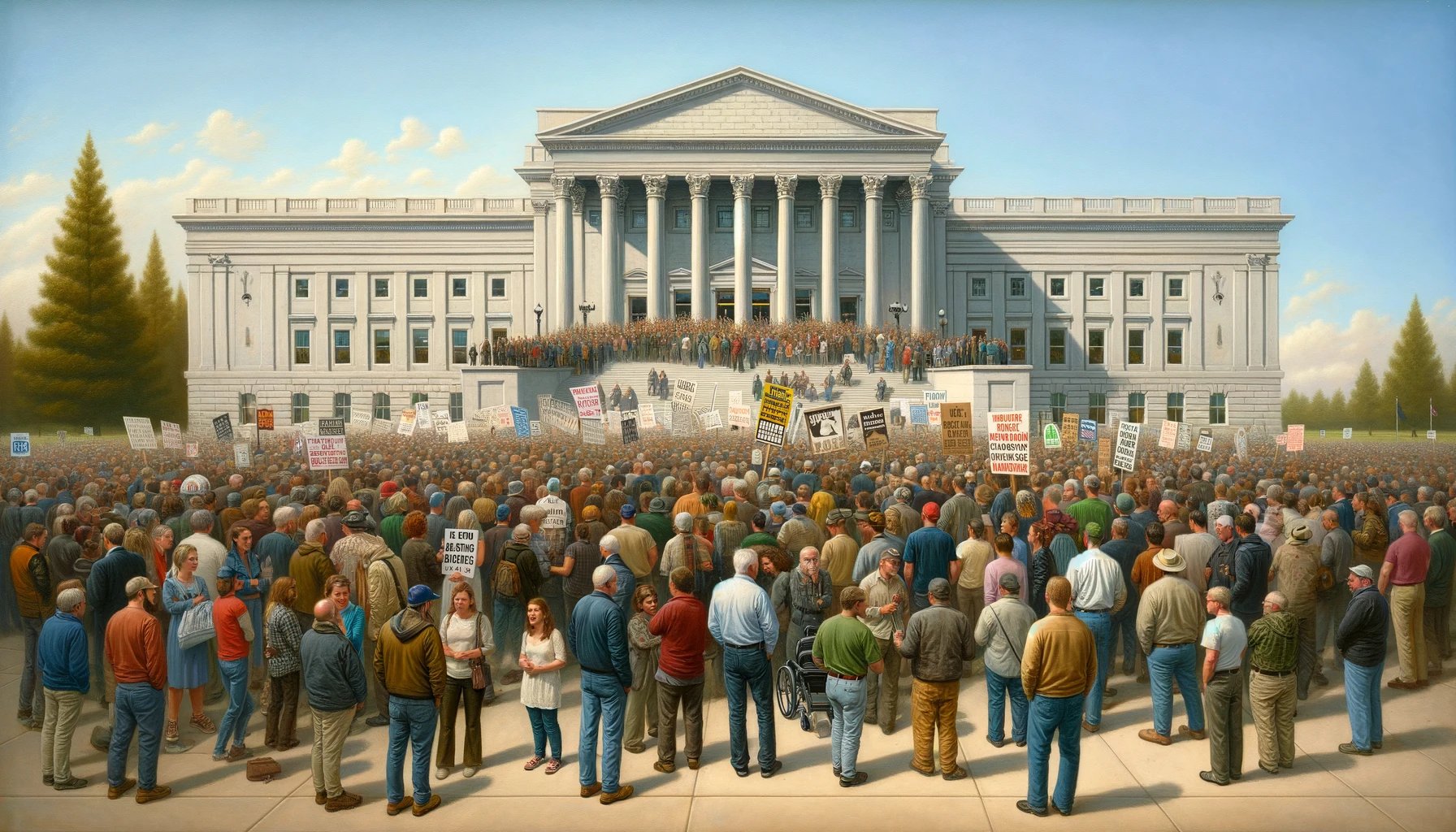

Theology and Spirituality
How Were The Rights Of The Westboro Baptist Church Protected
Published: February 24, 2024
Jason DeRose, Managing Editor at Christian.net, uses his expertise in religion and journalism to deepen understanding of faith's societal impacts. His editorial leadership, coupled with a strong academic background, enriches the platform’s diverse content, earning him recognition in both journalism and religious circles.
Discover how the rights of the Westboro Baptist Church were protected and the implications for theology and spirituality. Explore the legal and ethical considerations in this thought-provoking analysis.
(Many of the links in this article redirect to a specific reviewed product. Your purchase of these products through affiliate links helps to generate commission for Christian.net, at no extra cost. Learn more)
Table of Contents
Introduction
The Westboro Baptist Church has been a subject of intense debate and controversy due to its provocative and inflammatory protests at various public events, including military funerals and LGBTQ+ gatherings. The church's actions have sparked outrage and condemnation from individuals and communities across the United States. However, amidst the widespread disapproval, the legal protection of the Westboro Baptist Church's right to express its views has been a focal point of discussion.
The fundamental question arises: How were the rights of the Westboro Baptist Church protected despite the contentious nature of its activities? This inquiry delves into the complex intersection of constitutional rights, freedom of speech, and the legal battles that have unfolded over the years. By examining the background of the church, the legal principles at play, and the public response to its actions, a comprehensive understanding of the protection of its rights emerges.
The journey to comprehend the protection of the Westboro Baptist Church's rights is a multifaceted exploration that encompasses legal, ethical, and societal dimensions. As we navigate through the intricate landscape of constitutional law and the dynamics of public discourse, it becomes evident that the preservation of individual liberties, even in the face of vehement opposition, is a cornerstone of the American legal system. This exploration will shed light on the complexities and nuances inherent in safeguarding freedom of expression, regardless of the controversial nature of the viewpoints being expressed.
Read more: Why The Westboro Baptist Church Protests
Background of the Westboro Baptist Church
The Westboro Baptist Church, based in Topeka, Kansas, has gained notoriety for its vehemently anti-LGBTQ+ and anti-Semitic rhetoric, as well as its highly controversial protests at public events. Founded in 1955 by Fred Phelps, the church has been characterized by its extreme views and incendiary demonstrations, which often target marginalized communities and events associated with them.
The church's activities have included picketing military funerals with signs bearing inflammatory messages, such as "God Hates Fags" and "Thank God for Dead Soldiers." These actions have sparked widespread outrage and condemnation, leading to intense public scrutiny and legal challenges.
The Westboro Baptist Church's theological doctrine is rooted in a strict interpretation of Calvinist beliefs, emphasizing predestination and asserting that God's wrath is directed at those who deviate from their interpretation of biblical teachings. This theological framework underpins the church's uncompromising stance on various social and cultural issues, contributing to its confrontational approach in expressing its views.
The church's notoriety escalated in the late 20th and early 21st centuries as its protests garnered national attention and triggered emotional responses from individuals and communities affected by its activities. The confrontational tactics employed by the church have positioned it at the center of contentious debates surrounding the limits of free speech and the protection of individual rights in the United States.
Despite facing widespread condemnation and opposition, the Westboro Baptist Church has continued to assert its right to free expression, citing constitutional protections for its provocative demonstrations. This has led to legal battles and landmark Supreme Court cases that have shaped the discourse on the boundaries of free speech and the extent to which controversial viewpoints are safeguarded under the First Amendment.
The background of the Westboro Baptist Church is characterized by its uncompromising stance on social and cultural issues, its confrontational protests, and the intense public scrutiny and legal challenges it has faced. Understanding the origins and evolution of the church is essential in comprehending the complexities surrounding the protection of its rights and the broader implications for freedom of expression in the United States.
First Amendment Rights and Freedom of Speech
The protection of the Westboro Baptist Church's controversial demonstrations is deeply intertwined with the foundational principles of the First Amendment of the United States Constitution, which safeguards the right to freedom of speech. The First Amendment serves as a cornerstone of American democracy, enshrining the fundamental liberties of individuals to express their beliefs and opinions without government censorship or suppression.
Freedom of speech, as articulated in the First Amendment, extends beyond the safeguarding of popular or widely accepted viewpoints. It encompasses the protection of dissenting, contentious, and even offensive expressions, reflecting the framers' intent to foster a robust marketplace of ideas where diverse perspectives can coexist. This constitutional protection is not contingent upon the agreeability or societal acceptance of the expressed views but rather on the principle that all individuals possess the right to articulate their beliefs without fear of retribution or silencing.
The legal framework surrounding freedom of speech has been shaped by landmark Supreme Court decisions, including those directly relevant to the Westboro Baptist Church's activities. In the 1989 case of Texas v. Johnson, the Supreme Court ruled that flag burning, despite its contentious and inflammatory nature, constituted protected speech under the First Amendment. This decision underscored the principle that the government cannot prohibit expression simply because it is offensive or provocative.
Similarly, in the 2011 case of Snyder v. Phelps, the Supreme Court addressed the specific issue of the Westboro Baptist Church's protests at military funerals. The court's decision affirmed that the church's demonstrations, while deeply hurtful and offensive to the bereaved families, were protected under the First Amendment. The ruling emphasized that public debate on matters of societal concern, even when expressed in a confrontational manner, is afforded constitutional protection.
The legal precedents established through these and other cases underscore the robust protection of freedom of speech in the United States, even when the expressed views are deeply divisive and emotionally charged. The constitutional framework prioritizes the preservation of open dialogue and the clash of competing ideas, recognizing that the suppression of unpopular or controversial speech would undermine the vitality of public discourse and democratic engagement.
The intersection of the Westboro Baptist Church's activities with the principles of the First Amendment illuminates the complexities inherent in safeguarding freedom of speech, particularly when confronted with deeply polarizing and inflammatory expressions. This constitutional protection underscores the enduring commitment to upholding individual liberties and the unfettered exchange of ideas, even in the face of vehement opposition and societal discord.
Legal Battles and Supreme Court Cases
The legal battles surrounding the Westboro Baptist Church's provocative demonstrations have been marked by pivotal Supreme Court cases that have shaped the landscape of free speech jurisprudence in the United States. One of the most notable cases, Snyder v. Phelps, brought the church's activities to the forefront of constitutional scrutiny.
In 2006, the church picketed the funeral of Marine Lance Corporal Matthew Snyder, holding signs with incendiary messages targeting the LGBTQ+ community and the military. Albert Snyder, the father of the deceased Marine, filed a lawsuit against the church, alleging invasion of privacy and intentional infliction of emotional distress. The case ultimately reached the Supreme Court, where the fundamental question revolved around the collision of the First Amendment's protection of free speech and the privacy rights of the bereaved family.
In its 2011 ruling, the Supreme Court held that the Westboro Baptist Church's demonstrations, despite their deeply hurtful and offensive nature, constituted protected speech under the First Amendment. The court emphasized that public debate on matters of societal concern, even when expressed in a confrontational manner, is afforded constitutional protection. The decision underscored the principle that the government cannot prohibit expression simply because it is offensive or provocative, reaffirming the robust protection of freedom of speech in the United States.
The legal battle and subsequent Supreme Court ruling in Snyder v. Phelps exemplify the intricate balance between individual rights and the broader societal implications of free speech. The court's decision reaffirmed the enduring commitment to safeguarding the open exchange of ideas, even when they evoke profound emotional distress and societal discord. This landmark case stands as a testament to the resilience of constitutional principles in navigating the complexities of contentious and polarizing expressions, underscoring the enduring protection of freedom of speech in the American legal framework.
Public Opinion and Controversy
The activities of the Westboro Baptist Church have ignited a maelstrom of public opinion and controversy, eliciting visceral reactions from individuals, communities, and public officials across the United States. The church's confrontational protests, particularly at military funerals and LGBTQ+ events, have evoked widespread condemnation and outrage, leading to impassioned debates on the boundaries of free speech and the ethical implications of its actions.
Public opinion regarding the Westboro Baptist Church's demonstrations has been overwhelmingly negative, with many viewing the church's rhetoric as deeply offensive, hurtful, and antithetical to the values of compassion and respect. The targeting of grieving families at military funerals and the dissemination of inflammatory messages have elicited profound emotional distress and indignation, fueling a groundswell of public disapproval and calls for regulatory measures to curtail the church's activities.
Concurrently, the controversy surrounding the church's actions has sparked intense discussions on the delicate balance between free speech rights and the protection of individuals from emotional harm and harassment. While acknowledging the constitutional safeguards for freedom of expression, many have grappled with the ethical dimensions of permitting demonstrations that inflict profound anguish on those already enduring emotional vulnerability.
The clash of perspectives on the Westboro Baptist Church's activities has underscored the complexities inherent in reconciling the preservation of free speech with the imperative to uphold empathy and sensitivity towards marginalized and grieving communities. The church's actions have become emblematic of the profound tensions between constitutional liberties and the ethical responsibilities of individuals and organizations in a pluralistic society.
Amidst the fervent public opinion and controversy, the discourse has extended beyond legal considerations to encompass broader societal reflections on empathy, tolerance, and the responsibilities accompanying the exercise of free speech. The polarizing nature of the church's activities has catalyzed introspection on the ethical boundaries of expression and the cultivation of a civic culture that embraces respectful dialogue while safeguarding individual liberties.
The enduring controversy surrounding the Westboro Baptist Church's demonstrations serves as a poignant reminder of the intricate interplay between constitutional protections and the ethical imperatives of fostering a compassionate and inclusive public sphere. The ongoing dialogue and societal introspection prompted by the church's actions reflect the enduring quest to navigate the complexities of free speech in a manner that upholds the dignity and well-being of all individuals and communities.
Read more: What Religion Is The Westboro Baptist Church
Conclusion
The protection of the Westboro Baptist Church's rights, despite the contentious and deeply hurtful nature of its demonstrations, underscores the enduring commitment to upholding freedom of speech as enshrined in the First Amendment of the United States Constitution. The legal battles and landmark Supreme Court cases, particularly Snyder v. Phelps, have reaffirmed the robust protection of controversial and confrontational expressions, emphasizing the vital role of open dialogue and the clash of diverse viewpoints in a democratic society.
The enduring controversy surrounding the church's activities has catalyzed profound societal reflections on the ethical dimensions of free speech, empathy, and the responsibilities inherent in the exercise of constitutional liberties. While public opinion has overwhelmingly condemned the church's actions, the discourse has extended beyond legal considerations to encompass broader reflections on the cultivation of a civic culture that embraces respectful dialogue while safeguarding individual liberties.
The Westboro Baptist Church's confrontational tactics have become emblematic of the intricate tensions between constitutional protections and the ethical imperatives of fostering a compassionate and inclusive public sphere. The ongoing dialogue prompted by the church's actions reflects the enduring quest to navigate the complexities of free speech in a manner that upholds the dignity and well-being of all individuals and communities. It serves as a poignant reminder of the delicate balance between the preservation of individual rights and the imperative to uphold empathy and sensitivity towards marginalized and grieving communities.
In essence, the protection of the Westboro Baptist Church's rights serves as a testament to the resilience of constitutional principles in navigating the complexities of contentious and polarizing expressions. It underscores the enduring commitment to safeguarding the open exchange of ideas, even when they evoke profound emotional distress and societal discord. The ongoing dialogue and societal introspection prompted by the church's actions reflect the enduring quest to navigate the complexities of free speech in a manner that upholds the dignity and well-being of all individuals and communities.

